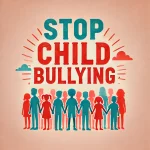
Chances are you’ve felt that deep, gnawing sense of being isolated that can creep in amid the chaos of motherhood. Maybe you’re reading this during a 3 AM feeding, feeling like you’re the only person awake in the world. Or perhaps you’re stealing a few quiet moments while your toddler naps, wondering when was the last time you had an adult conversation that didn’t revolve around sleep schedules or potty training.
Whatever brought you here, I want you to know something important: You are not alone in feeling alone.
It’s one of the great paradoxes of motherhood, isn’t it? You’re rarely physically alone—there’s almost always a little person (or two or three) demanding your attention. And yet, the feeling of isolation can be overwhelming. It’s as if you’re on an island, surrounded by a sea of dirty diapers, unfolded laundry, and half-finished cups of cold coffee.
As a mom who’s navigated these waters (and sometimes still feels adrift), I get it.
I’ve had those moments where I’ve looked at my reflection in the mirror, maybe with spit-up on my shirt and dark circles under my eyes, and thought, “What happened to my social life? Where did ‘me’ go?” If you’re nodding along, thinking, “Yes, that’s exactly how I feel!” then you’re in the right place.
In this article, we’re going to dive deep into four major reasons why motherhood can feel so isolating. We’re not just going to skim the surface or offer empty platitudes. We’re going to get real about the challenges, validate your feelings, and hopefully shed some light on why you’re feeling the way you do. And don’t worry—we’ll also talk about ways to bridge the gap and find connection in the beautiful chaos of motherhood.
So grab that cup of coffee (even if it’s cold), take a deep breath, and let’s unpack this together. It’s time to talk about the isolation of motherhood and what we can do about it.
1. The Identity Shift: When “You” Becomes “Mom”

Remember the days when your identity was multifaceted? When were you known for your killer presentation skills at work, your ability to whip up a gourmet meal for friends, or your talent for always finding the best happy hour spots? Then, in what feels like the blink of an eye, you became “Mom.” And while that title is incredibly precious, it can also feel like it’s swallowed up every other aspect of who you are.
This seismic shift in identity is one of the primary reasons motherhood can feel so isolating. Suddenly, your days revolve around feeding schedules, diaper changes, and trying to decode your baby’s cries. Your conversations, when you have them, often center around your child. And while there’s nothing wrong with that—your child is, after all, one of the most important parts of your life—it can leave you feeling disconnected from the person you used to be.
This loss of individual identity can be particularly isolating for several reasons:
- You might feel like you can’t relate to your old friends anymore, especially those without kids.
- You may struggle to find topics to discuss that don’t revolve around your children.
- You might feel guilty for wanting to nurture aspects of your identity beyond motherhood.
So, how can we address this identity shift and the isolation it can bring?
- Carve out time for your interests: Even if it’s just 15 minutes a day, make time for something that’s just for you. Read a chapter of a book, practice an instrument, or work on a hobby.
- Connect with other moms who share your interests: Look for local groups or online communities where you can discuss both motherhood and your other passions.
- Practice self-affirmation: Remind yourself daily that you are more than “just” a mom. You’re a whole, complex person with varied interests and abilities.
- Share your pre-mom self with your kids: As they get older, let them see the other sides of you. Play them your favorite music, teach them about your hobbies, and tell them stories about your life before they came along.
Remember, becoming a mom doesn’t mean you stop being you. It’s about integration, not replacement. You’re not just a mom—you’re a mom AND so much more.
2. The Friendship Fade: When Your Social Circle Shrinks

It’s Friday night. Pre-motherhood, you might have been getting ready for a night out with friends, or hosting a dinner party, or even just settling in for a long catch-up call with your bestie. Now? You’re elbow-deep in bath time, followed by bedtime stories, followed by collapsing on the couch, too exhausted to even think about socializing.
Welcome to the friendship fade of motherhood.
One of the most isolating aspects of becoming a mom is the way it can impact your friendships. Suddenly, your availability, energy levels, and priorities have all shifted dramatically. Your childless friends might still be living the life you used to have while you’re on a totally different schedule and wavelength. Even friends who are parents themselves might be in a different stage of parenting, making it hard to sync up.
This friendship fade can happen for several reasons:
- Lack of time: Between caring for your child, possibly working, and trying to maintain your household, there’s precious little time left for socializing.
- Different life stages: Your childless friends might not understand why you can’t just “get a sitter and come out,” while your friends with older kids might have forgotten the challenges of the newborn stage.
- Energy depletion: Even when you do have free time, you might be too exhausted to socialize.
- Shifting interests: Your concerns and topics of conversation might have changed, making it harder to connect with old friends.
So, how can we combat this friendship fade?
- Be proactive: Don’t wait for friends to reach out. If you’re thinking of someone, send a quick text or voice message. Even small points of contact can help maintain connections.
- Embrace new forms of socializing: Maybe girls’ night out has become Netflix party night in. Get creative with ways to connect that fit your new lifestyle.
- Be honest with your friends: Let them know you’re struggling with the transition and missing them. True friends will understand and work with you to find new ways to stay connected.
- Seek out mom friends, but don’t limit yourself to them. While other moms can be a great source of support and understanding, also try to maintain friendships that allow you to connect over other aspects of your identity.
- Utilize technology: Video calls, group chats, and social media can help you stay connected even when you can’t meet in person.
Remember, your social circle might shrink, but the quality of your friendships can deepen. Focus on nurturing the relationships that truly support and uplift you in this new phase of life.
3. The Communication Gap: When Nobody Seems to Understand

Imagine you’re at a family gathering, surrounded by well-meaning relatives. Your aunt asks how you’re doing, and you start to explain how exhausted you are, how you haven’t had a full night’s sleep in months, and how you’re worried about whether you’re doing this whole motherhood thing right. And then she says, with a smile, “Oh, but it’s all worth it, isn’t it? These are the best days of your life!”
You smile and nod, but inside, you’re screaming.
This, my friend, is the communication gap of motherhood. It’s that feeling that no one really gets what you’re going through—not your partner, not your friends, not your family. It’s the isolation that comes from feeling like you can’t truly express the complexity of your emotions and experiences without being dismissed or misunderstood.
This communication gap can be isolating for several reasons:
- Fear of judgment: You might worry that expressing your struggles will make you seem like a “bad mom.”
- Guilt: When everyone tells you how lucky you are, it can make you feel guilty for having any negative feelings.
- Lack of validation: When your feelings are constantly brushed aside or minimized, you might stop sharing them altogether.
- Generational differences: Older relatives might not remember or might have a rosier view of their parenting years, making it hard for them to relate to your struggles.
So, how can we bridge this communication gap?
- Find your tribe: Seek out other moms, whether in person or online, who are in the same stage of motherhood as you. They’re more likely to truly understand what you’re going through.
- Be honest with your partner: If you have a partner, try to openly communicate about your feelings and needs. They might not fully understand, but giving them the chance to try is important.
- Set boundaries: It’s okay to politely but firmly shut down comments that dismiss your feelings. A simple “I appreciate your perspective, but right now I just need someone to listen” can work wonders.
- Seek professional support: A therapist or counselor who specializes in postpartum issues can provide a non-judgmental ear and valuable coping strategies.
- Express yourself creatively. Sometimes when words fail, other forms of expression can help. Try journaling, art, or even starting a blog to get your feelings out.
Remember, your feelings are valid, even if not everyone understands them. You’re allowed to love your child fiercely and still find aspects of motherhood challenging. It’s not an either/or situation—it’s both/and.
4. The Logistics Lockdown: When Getting Out Feels Impossible

Remember when leaving the house was as simple as grabbing your keys and walking out the door? Now, it feels like you’re planning an expedition to the Antarctic. Diaper bag packed? Check. Snacks for every possible scenario? Check. Backup clothes (for baby AND you)? Check. By the time you’re ready to go, you’re too exhausted to actually leave.
Welcome to the logistics lockdown of motherhood.
This practical challenge of simply getting out of the house can be one of the most isolating aspects of being a mom, especially in the early days. What used to be simple—meeting a friend for coffee, running to the store, or even just taking a walk—now requires military-level planning and execution.
logistics lockdown can be isolating for several reasons:
- It’s exhausting: The mental and physical effort required to leave the house with a baby or young children can be overwhelming.
- It’s unpredictable: Even with the best planning, babies and toddlers are unpredictable. The fear of public meltdowns or diaper blowouts can keep you home.
- It’s time-consuming: What used to be a quick errand now takes three times as long, eating into already scarce free time.
- It’s expensive: The cost of childcare or baby-friendly activities can make going out feel like a luxury you can’t afford.
So, how can we break free from this logistics lockdown?
- Start small: Don’t pressure yourself to jump into big outings. A short walk around the block or a quick trip to a nearby park can help you build confidence.
- Find baby-friendly spaces: Look for cafes, libraries, or community centers that welcome children. Knowing you’re in a judgment-free zone can ease anxiety.
- Connect online: On days when getting out truly feels impossible, online communities can provide social interaction and support.
- Invite people to you: Sometimes it’s easier to have friends or family come to your house. Don’t be afraid to invite people into your mess—real friends won’t judge.
- Simplify your diaper bag: Keep a pre-packed bag by the door with just the essentials. It can make spontaneous outings feel more doable.
- Give yourself grace: Some days, staying home is what you need, and that’s okay. Don’t beat yourself up over it.
Remember, this phase is temporary. As your children grow, getting out will become easier. In the meantime, any step you take to connect with the outside world, no matter how small, is a victory worth celebrating.
Breaking the Isolation
Motherhood can be incredibly isolating, but it doesn’t have to be a solitary journey. Yes, the challenges are real—the identity shift, the friendship fade, the communication gap, the logistics lockdown. But there are ways to bridge these gaps and find connection, even in the midst of the beautiful chaos of raising tiny humans.
Here are a few final thoughts to carry with you:
- You’re not alone in feeling alone. So many moms experience this, even if they don’t talk about it.
- Your feelings are valid. It’s okay to love your children fiercely and still struggle with the isolation of motherhood.
- Small steps count. Even tiny efforts to reach out and connect make a difference.
- It’s okay to ask for help. Whether it’s from family, friends, or professionals, seeking support is a sign of strength, not weakness.
- This phase is temporary. As your children grow, many of these challenges will evolve or fade.
Remember, the very fact that you feel this isolation so deeply is a testament to your need for connection—a very human, very normal need. You haven’t lost that part of yourself that craves friendship, understanding, and community. It’s still there, waiting to be nurtured.
So, as you navigate another day of sippy cups, storytime, and snuggles, remember this: You are seen. You are understood. You are not alone.
Reach out to a friend, join a mom group, chat with a neighbor, or even just comment on another mom’s social media post. Every small act of connection is a step away from isolation and towards community.
You’ve got this. And you don’t have to do it alone. One connection at a time, you can build a village around you that will lift you up, understand you, and remind you of the amazing, multifaceted woman you are—not just a mom, but a whole, beautiful, complex human being worthy of connection and community.






